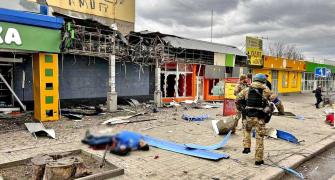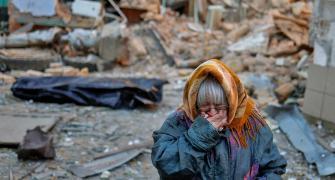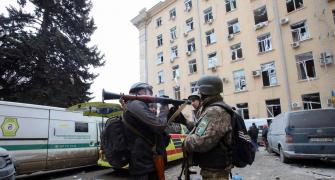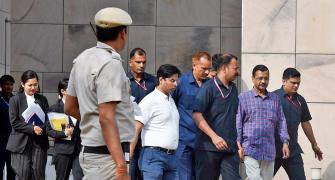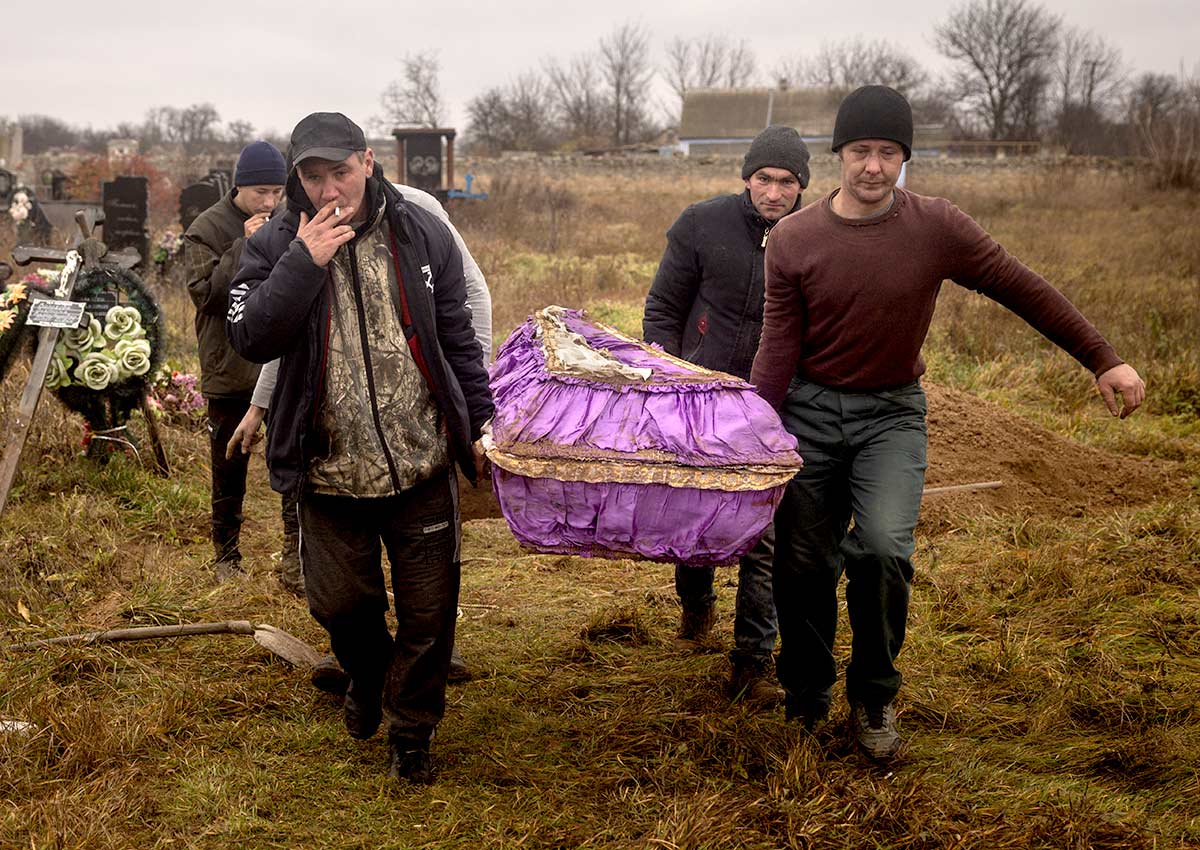We have already suffered considerable collateral damage as a result of the war, and its continuance will continue to dampen our prospects for faster economic growth.
We, therefore, have a direct and legitimate interest in its early cessation, asserts former foreign secretary Shyam Saran.
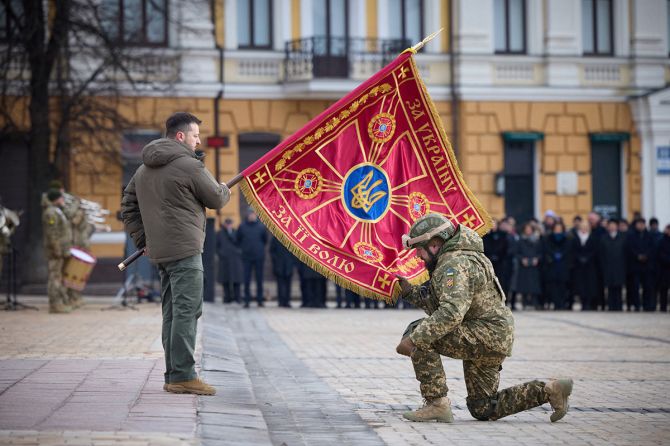
February 24 marks one year of the Ukraine war. The question is no longer who will win or lose the war, but rather what could lead the warring sides to end the blood-letting without having to admit defeat, or indeed exhaustion.
For this, intensive and imaginative diplomacy is indispensable and the lead in this must be taken by a country or countries that are invested in neither side.
India could be one such country.
It could also lead a group of influential middle powers, such as Brazil, Indonesia and South Africa and perhaps even Turkey, to try and broker a cessation of hostilities, if not a peaceful outcome.
One needs to evolve a 'politics of extrication' that is nuanced, perhaps even ambiguous, aimed at preventing the current and inexorable escalation of hostilities and then de-escalating through a series of incremental steps.
The Ukraine war represents a failure of diplomacy.
The first anniversary of the outbreak of the war must be the occasion for diplomacy to redeem itself.

There are important lessons to be drawn from the war.
For Russia, some key lessons are already apparent:
One, winning battles does not necessarily translate into victory in war.
Russia has lost the war even if it is able to win many more battles in the spring and summer this year.
A devastated Ukraine, reduced to rubble, with a population united in its hatred of Russia and Russians, cannot count as victory in any conceivable description.
This will become a festering wound that will sap whatever power a victorious Russia may pretend to have gained.
Two, if preventing the expansion of NATO closer to the borders of Russia was a key objective of this war, then the impending entry of Sweden and Finland into Nato, leaves Russia even more vulnerable than before the war; and
Three, the Ukraine war has accelerated Russian decline as a great power rather than enabled its revival.
It is facing the real prospect of being reduced to a subordinate ally of China.

For the US and Europe, the Ukraine war represents a significant setback and a looming danger.
The oft-repeated aim of assisting Ukraine to resist Russian invasion is to not allow, under any circumstances, a Russian military victory.
But this implies a tacit commitment to an escalatory military strategy, which may draw Nato into a direct and infinitely more dangerous military confrontation with Russia.
This would change the nature of the conflict altogether and could well trigger a nuclear threat.
We are already witnessing an ominous advance in that direction.
This escalatory dynamic should be recognised and halted and reversed before it is too late.
If, as I have argued, Russia has already lost this war, then diplomacy should be activated to help it extricate itself from this morass and begin to rehabilitate itself.
This will also enable Russia to avoid subordination to China, which is, after all, the key challenge to the Western-dominated international order.
The West cannot cope with both a Russian and Chinese challenge simultaneously.
It makes more sense to neutralise Russia through diplomacy and concentrate on dealing with the far more serious Chinese challenge.
What about China? China might, at first sight, welcome a US and European preoccupation with the Russian threat, believing it may relieve US pressure on its eastern flank. This has not happened so far.
The US has doubled down on its alliances and partnerships in Asia, even as it assists Ukraine in resisting Russia.
An escalatory dynamic in the Ukraine war would not be in Chinese interests, particularly if there is a danger of the use of nuclear weapons.
It is worth exploring whether China, too, would be willing to join an emerging powers' group to engage in a diplomatic initiative to bring the war to a halt even if a negotiated peace may be a bridge too far at this time.
China is one country that enjoys considerable influence in Moscow.
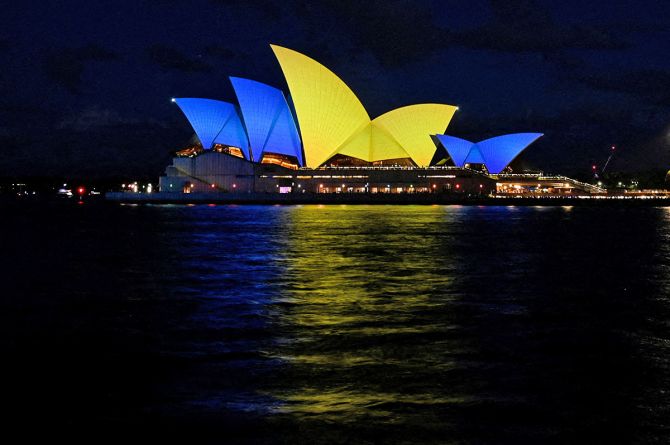
Among the countries of the south, including India, there is a widespread sentiment that this is someone else's war and one should avoid leaning towards one side or the other.
There is also a view that the conflict has reached an impasse and may simmer on in a low-intensity manner.
This is a short-sighted posture. We have already suffered considerable collateral damage as a result of the war, and its continuance will continue to dampen our prospects for faster economic growth.
We, therefore, have a direct and legitimate interest in its early cessation.
It is also clear that the war is likely to be waged on an expanded scale and with greater intensity.
The likelihood of it winding down into a low-intensity conflict is no longer credible.
Russia is preparing to launch a major and expanded offensive against eastern Ukraine and renew attacks against the southern part of the country.
The US and west European countries are stepping up supplies of more lethal and sophisticated weapons to Ukraine.
What we see are signs of a war that will escalate and which may get out of hand with catastrophic consequences for the whole world.
The countries of the south are not sufficiently mindful of the dangers that await them if the war gathers greater scale and intensity during the year.
There would be serious political, economic, and even social consequences with the brunt being borne by the South.
India's own prospects for economic advancement and a rise in its international stature would be severely impacted.
There is an overarching humanitarian aspect that should not be ignored.
The people of Ukraine are suffering untold misery and deserve our sympathy and support.
The G20 should highlight this humanitarian aspect and mobilise relief for those who have been impacted by the war.
There is every reason for India to take the lead in a sustained and focused diplomatic effort to defuse the Ukraine crisis and seek an urgent cessation of hostilities.
This should be on the top of the agenda of the forthcoming G20 summit.
The slogan One Earth, One Family, One Future will mean very little if we treat the Ukraine war as mainly a distraction.
It must be our central preoccupation.


